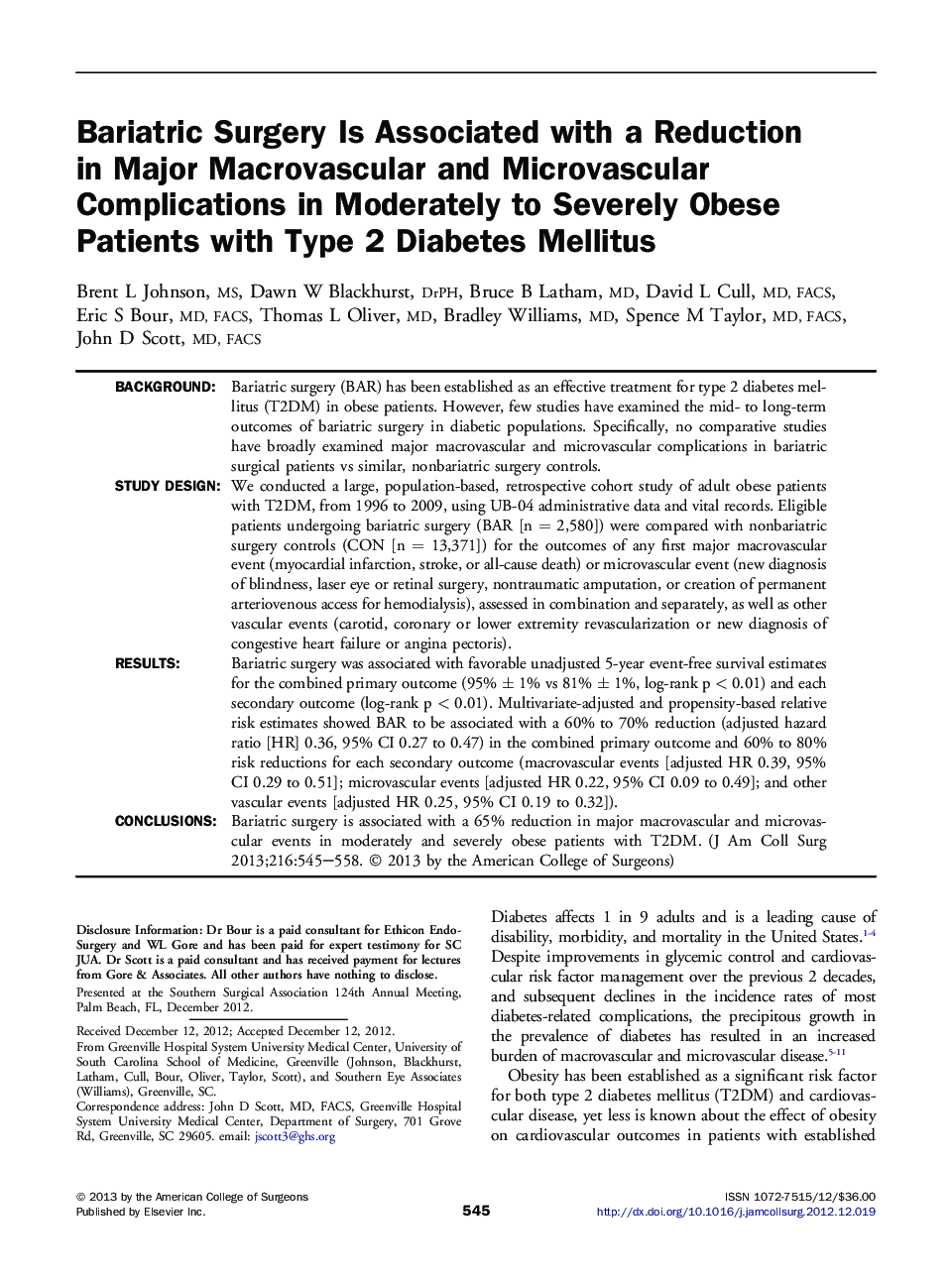| کد مقاله | کد نشریه | سال انتشار | مقاله انگلیسی | نسخه تمام متن |
|---|---|---|---|---|
| 4293075 | 1612248 | 2013 | 12 صفحه PDF | دانلود رایگان |

BackgroundBariatric surgery (BAR) has been established as an effective treatment for type 2 diabetes mellitus (T2DM) in obese patients. However, few studies have examined the mid- to long-term outcomes of bariatric surgery in diabetic populations. Specifically, no comparative studies have broadly examined major macrovascular and microvascular complications in bariatric surgical patients vs similar, nonbariatric surgery controls.Study DesignWe conducted a large, population-based, retrospective cohort study of adult obese patients with T2DM, from 1996 to 2009, using UB-04 administrative data and vital records. Eligible patients undergoing bariatric surgery (BAR [n = 2,580]) were compared with nonbariatric surgery controls (CON [n = 13,371]) for the outcomes of any first major macrovascular event (myocardial infarction, stroke, or all-cause death) or microvascular event (new diagnosis of blindness, laser eye or retinal surgery, nontraumatic amputation, or creation of permanent arteriovenous access for hemodialysis), assessed in combination and separately, as well as other vascular events (carotid, coronary or lower extremity revascularization or new diagnosis of congestive heart failure or angina pectoris).ResultsBariatric surgery was associated with favorable unadjusted 5-year event-free survival estimates for the combined primary outcome (95% ± 1% vs 81% ± 1%, log-rank p < 0.01) and each secondary outcome (log-rank p < 0.01). Multivariate-adjusted and propensity-based relative risk estimates showed BAR to be associated with a 60% to 70% reduction (adjusted hazard ratio [HR] 0.36, 95% CI 0.27 to 0.47) in the combined primary outcome and 60% to 80% risk reductions for each secondary outcome (macrovascular events [adjusted HR 0.39, 95% CI 0.29 to 0.51]; microvascular events [adjusted HR 0.22, 95% CI 0.09 to 0.49]; and other vascular events [adjusted HR 0.25, 95% CI 0.19 to 0.32]).ConclusionsBariatric surgery is associated with a 65% reduction in major macrovascular and microvascular events in moderately and severely obese patients with T2DM.
Journal: Journal of the American College of Surgeons - Volume 216, Issue 4, April 2013, Pages 545–556